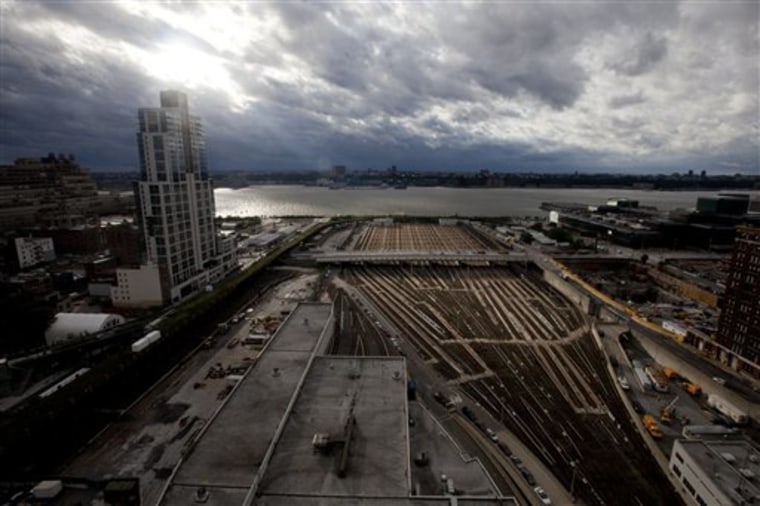Travelers are having an easier time making it up and down the East coast as Amtrak gets more trains back on line following Hurricane Irene.
Amtrak's Keystone Service is operating again Thursday between Harrisburg, Pa. and New York, via Philadelphia.
The Ethan Allen Express is ferrying riders again, although Amtrak is providing alternate transportation through the hardest-hit stretch of the route, between Albany and Rutland, Vt.
Routes connecting Chicago with New York and Boston are also running as scheduled.
Earlier Amtrak restored service in the Northeast Corridor, including Acela service between Washington, D.C. and Boston. Portions of some routes remain closed, including those connecting Albany to Buffalo and Niagara Falls, plus Northeast Regional trains between Richmond and Newport News, Va.
Amtrak announced Tuesday evening that it would resume most of its trains between Philadelphia and New York City on Wednesday morning. As floodwaters from the weekend hurricane receded and most of Amtrak's service along the East Coast had resumed, the gap remained a major, frustrating exception.
The problem was flooding that buried the Trenton station under several feet of water. It meant that in a region where commuters depend on trains, New Jersey Transit and the Philadelphia transit system also could not get their trains into Trenton.
Early Wednesday morning, NJ Transit officials announced that service would be restored on the Northeast Corridor Line from Trenton to New York's Penn Station for the morning commute. However, officials warned commuters to expect 30-45 minute delays due to ongoing signal problems.
The flooding left commuters to work from home, business travelers to hope they could make their meetings and many people to scramble for seats on buses.
The chokehold on one of the busiest parts of the nation's passenger rail service was caused by the Assunpink Creek, a waterway so small you might not notice it under normal conditions. On Sunday, it spilled out of its banks and turned the station into a pond, partly submerging trains parked there.
Sean Jeans-Gail, vice president of the National Association of Railroad Passengers, said his group didn't fret about disruptions caused by flooding on the Assunpink before Irene and wasn't especially worried about it after. Since most service suspensions are caused by equipment failures, Jeans-Gail said, Amtrak has higher-priority projects that would keep the trains running reliably.
But he said this week's problems may be a wake-up call.
"If climate change is going to affect the kind of storms we get in the Northeast, it certainly is something transit officials need to look at," he said.
Associated Press writers Patrick Walters in Philadelphia, Meghan Barr and Verena Dobnik in New York and Josh Lederman in Trenton contributed.
